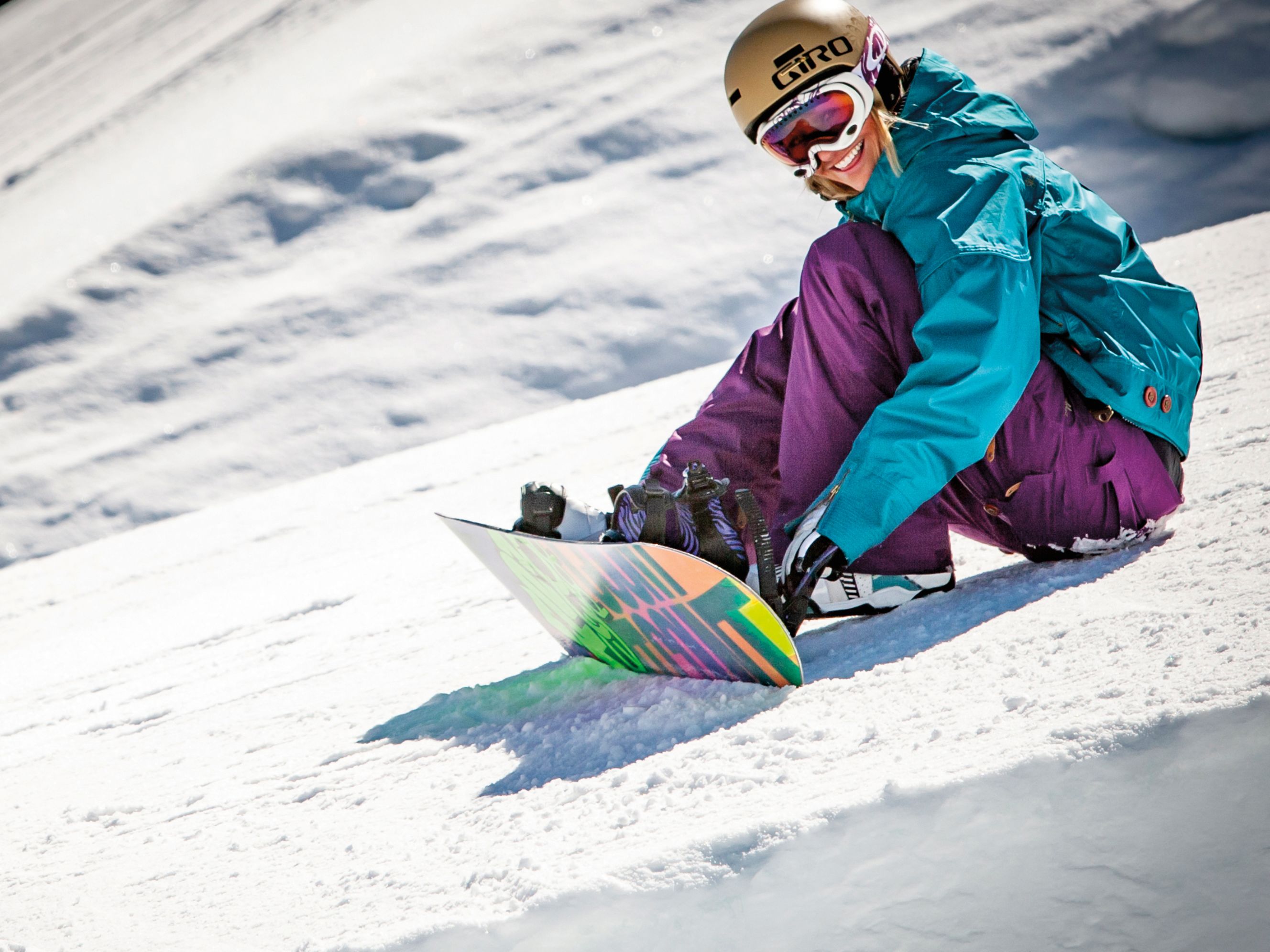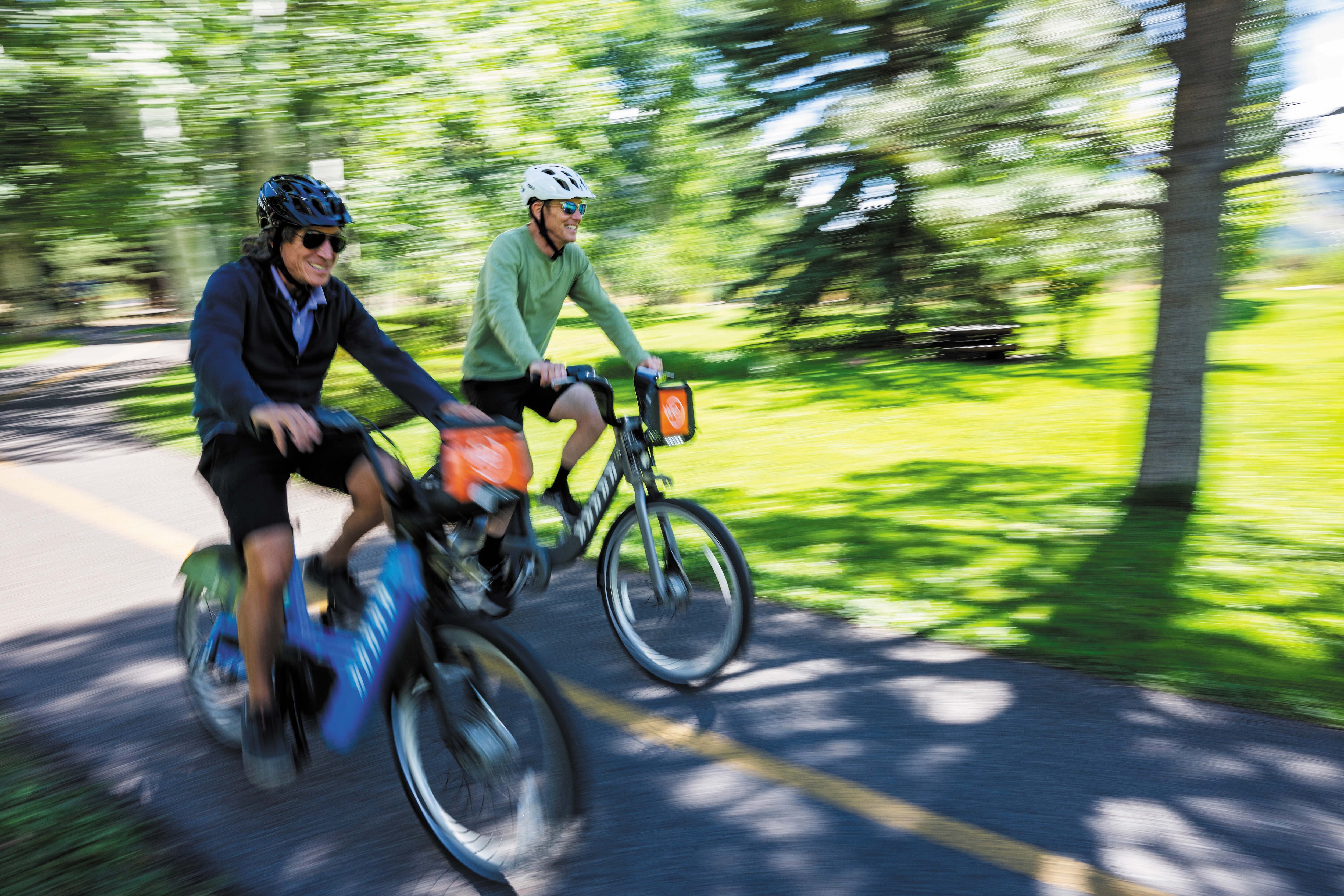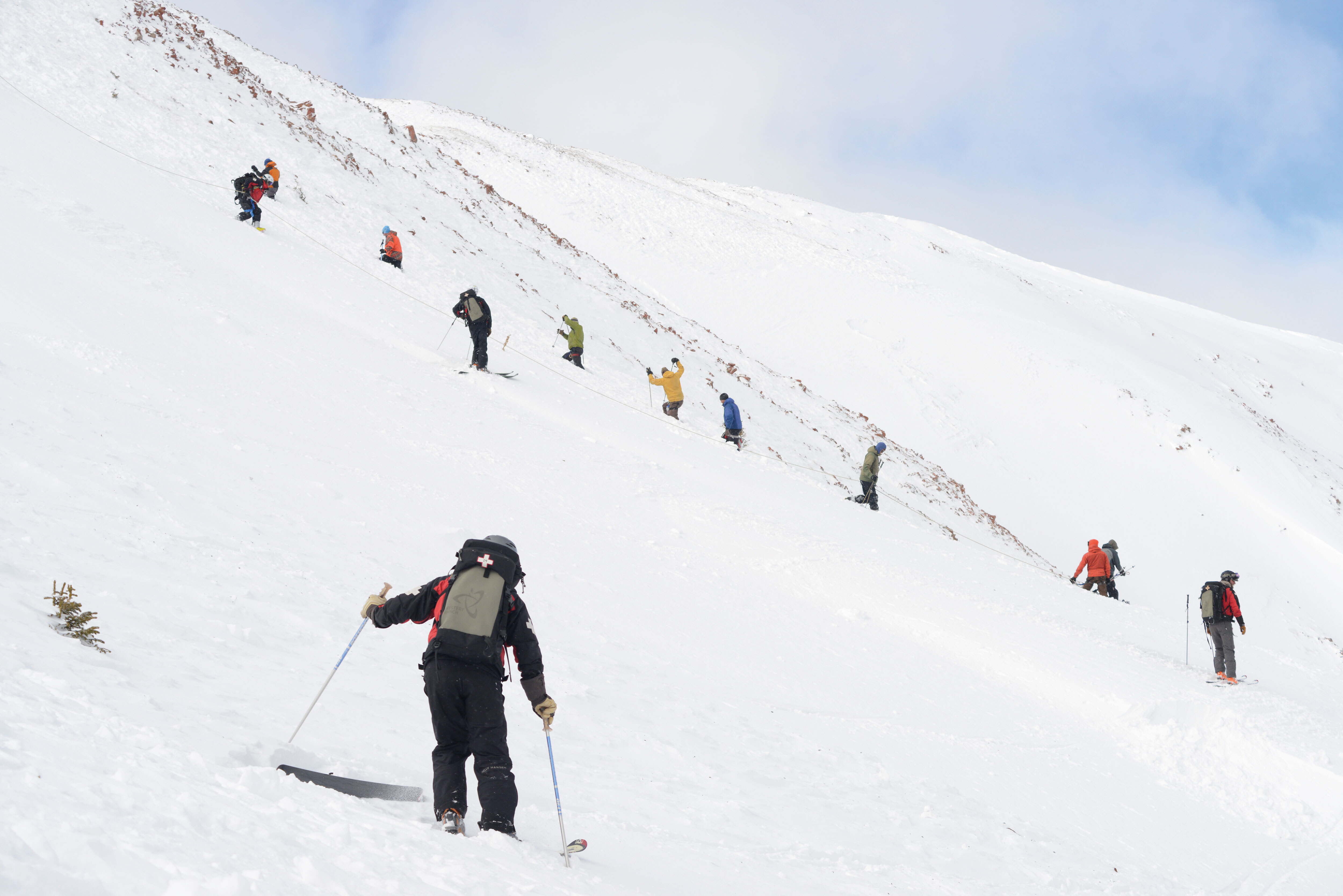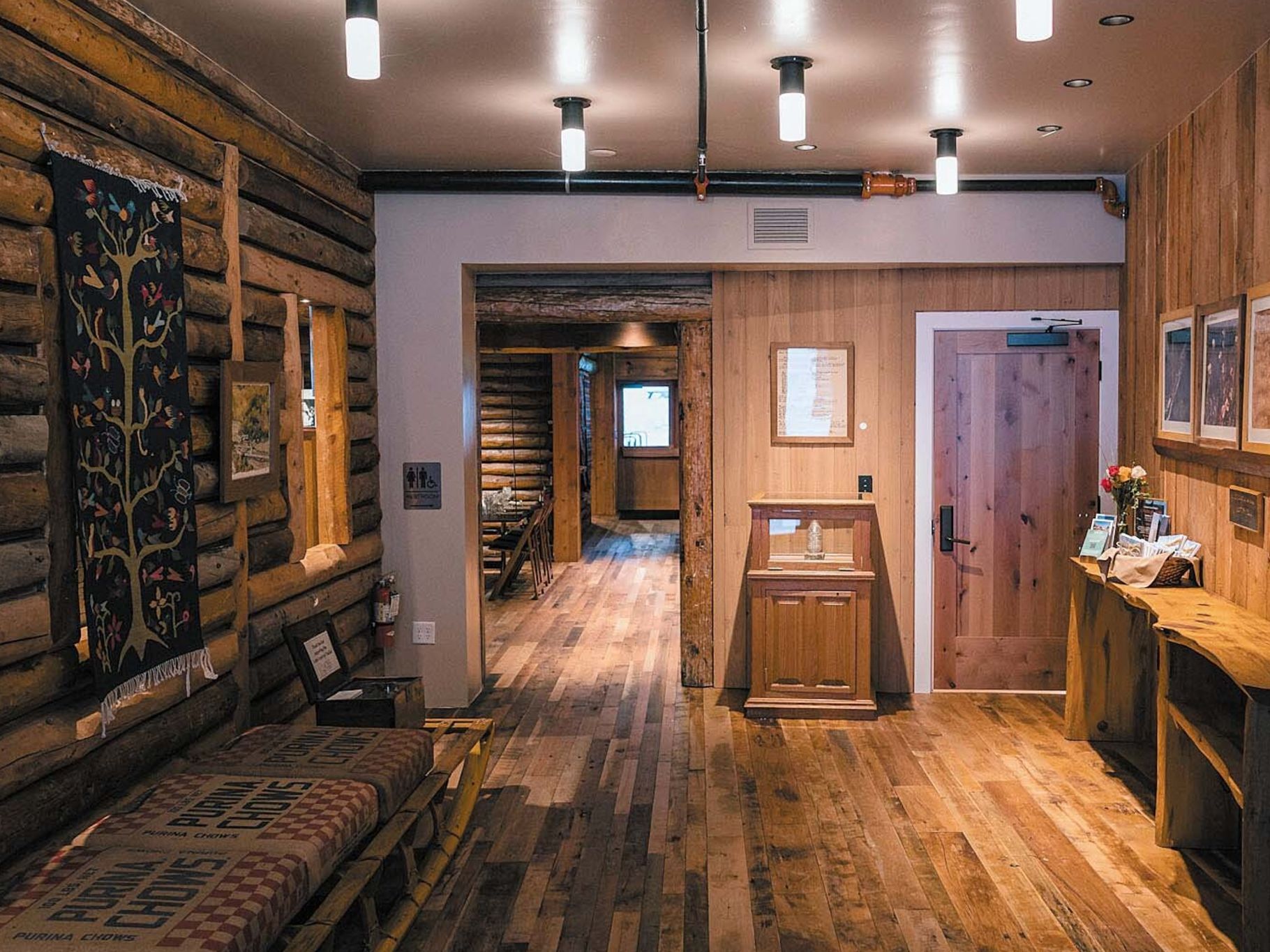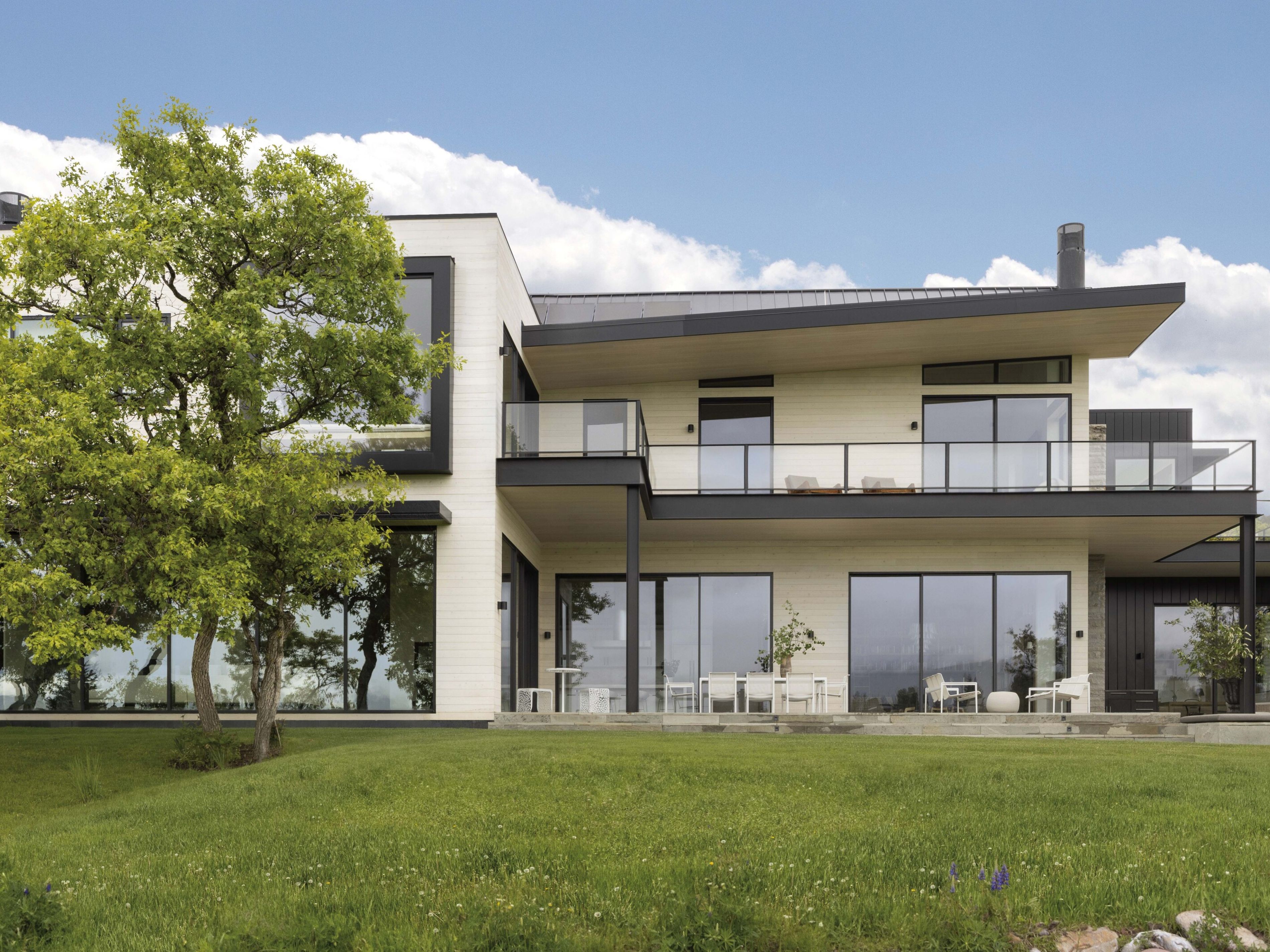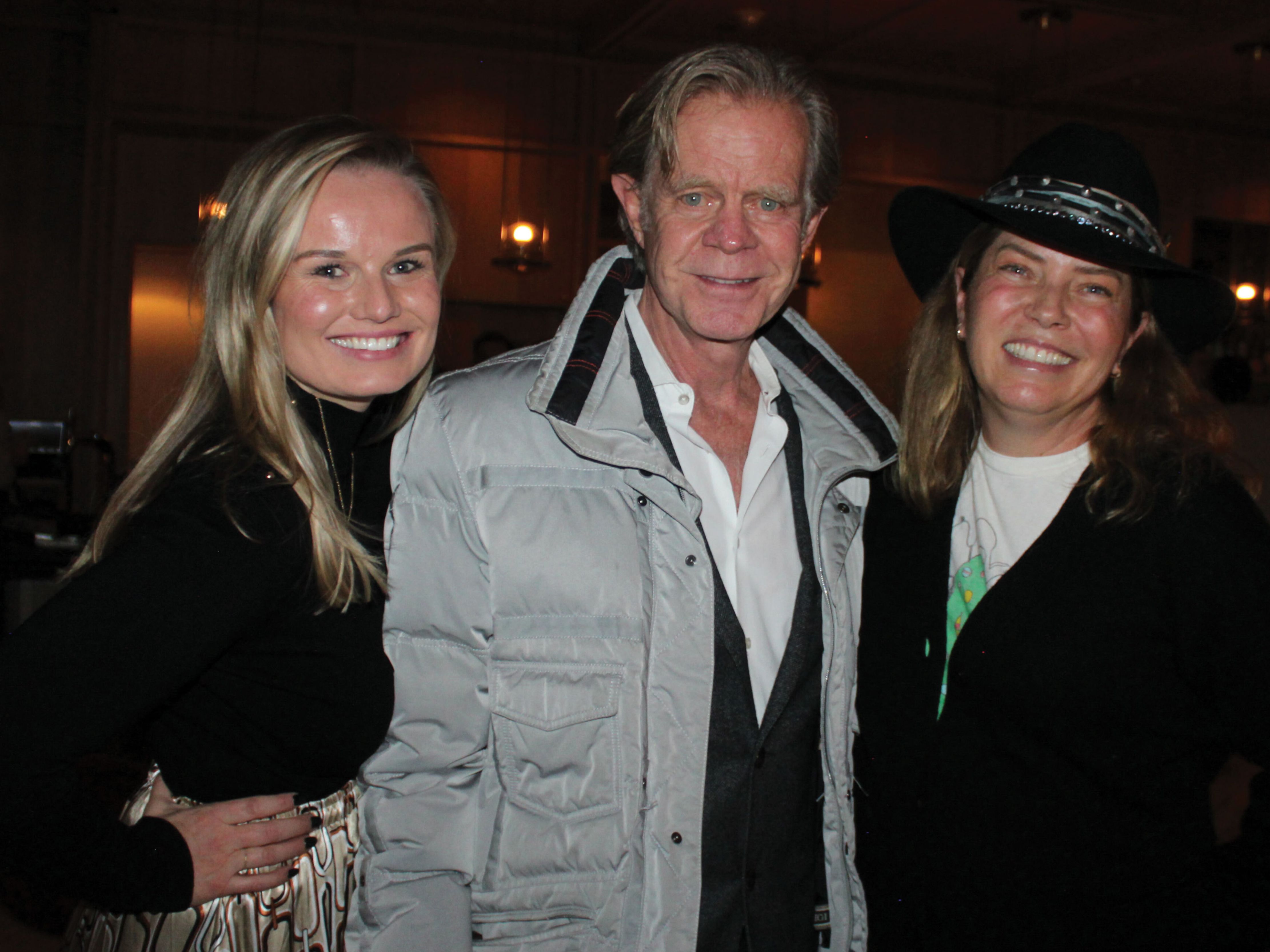Surprise! E-Bikes Are Catching on Even in Cardio-Obsessed Aspen
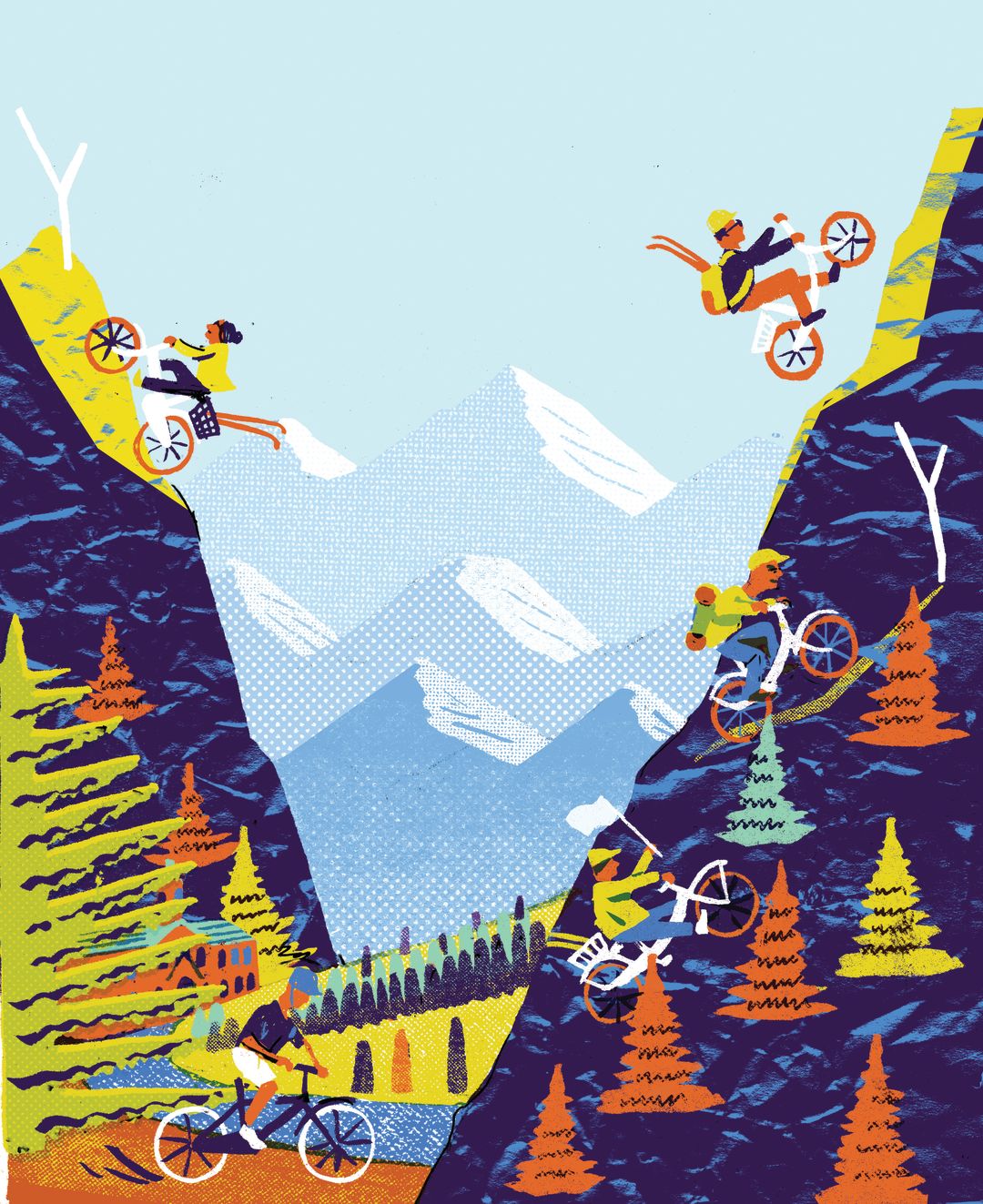
Image: Daniel Haskett
Our local athletes don’t just endure agony; they thrive on it. Self-propelled activities reign supreme in the Roaring Fork Valley, and races routinely sell out that involve cycling to the top of Independence Pass, trail-running a backcountry marathon, or biking up all four ski resorts. So most Aspenites would scoff at the thought of using a motor to make a sport easier, wouldn’t they?
In fact, locals of all ages and abilities are not only trying but embracing electric bikes.
Ski mountaineers this past winter chose fat e-bikes over snowmobiles to access Independence Pass and Maroon Creek. There’s a 76-year-old mountain biker notching top times on Strava from an e-bike. Teenagers ride e-bikes to commute to school in skirts without breaking a sweat, and Aspen pedicab drivers are now getting a motor-assisted boost while pedaling customers around town.
“They are the way of the future,” says Aspen Velo owner Michael Wampler, whose store sells and rents the bikes. “I dabbled in them last summer and couldn’t keep them in stock. Then I went to the bike trade show and saw half the show was e-bikes.”
Mountain bikers may worry that motorized bikes could take over on singletrack, and roadies don’t relish the thought of being passed by a motor-assisted flatlander riding up to the Maroon Bells, but the reality is, these bikes aren’t aimed at the Strava set.
“I think they are best viewed as an interesting new tool for expanding access to the benefits cycling provides,” says 32-year-old Tyler Lindsay, an avid mountain biker who commutes on his e-bike from Woody Creek to the Aspen Airport Business Center. “Whether you’re trying to bring home groceries, take your children to the park, or even just look good in your new Lululemon pants, an e-bike keeps you outside pedaling when you might otherwise be in your car. And that’s a really good thing.”
Loosely defined as an electric motor–assisted bicycle with no throttle, e-bikes can operate like a regular bike, but in pedal-assist mode, a rechargeable, battery-powered motor in the wheel’s hub or crank augments human power. The 1-horsepower motor shuts off when the rider coasts or pedals faster than the legal limit of 20 miles per hour.
The Colorado Department of Transportation limits e-bikes to public roads unless otherwise approved by a town or county. Here, Pitkin County currently bans e-bikes from multiuse and nonmotorized trails, but Pitkin County Open Space and Trails is working with Eagle and Garfield counties, as well as the Roaring Fork Transportation Authority, to open the valley-long Rio Grande Trail to the bikes in hopes of reducing commuter traffic.
Even if that effort succeeds, there will be a few additional hurdles to overcome.
“Once it takes off, we are going to have to enforce speeds,” says Austin Weiss, director of Parks and Open Space for the City of Aspen, who is also working on the Rio Grande program. Moreover, he adds, “e-bike riders might not be proficient cyclists or have any sense of protocol. We see that as part of the challenge.”
Places you’re unlikely to see riders on e-bikes buzzing around anytime soon are singletrack trails like those in Hunter Creek or Sky Mountain Park. Most advocacy organizations, land managers, and ardent mountain bikers agree they don’t belong there. While studies have shown e-bikes don’t deteriorate trails any more than their non-motorized counterparts (though they obviously increase use), many believe they threaten access for all mountain bikers by increasing tension between other user groups, particularly hikers and equestrians. In addition, many trails were designated non-motorized after years of advocacy work by dedicated cyclists, and that designation could easily be revoked. Therefore, the International Mountain Bike Association calls for a ban on e-assist motors on trails designated for non-motorized access.
Faced with this new category of motorized bike—versus internal-combustion motorcycles—land agencies have yet to create consistent rules. In some places, for instance, riders with a disability can use e-bikes on trails. With the category’s growth, future e-bike legislation will most likely remove the inconsistencies.
Local trail advocates, meanwhile, suggest that e-bikers explore the surrounding White River National Forest as they would on a dirt bike—riding Forest Service roads up Lincoln Creek, along Richmond Ridge, and over passes like Star, Pearl, or Schofield.
E-bikes are also being used for professional purposes. The Aspen Police Department purchased two bikes last fall for patrolling, and other departments downvalley have followed suit. “We equipped them with studded snow tires and they worked well around town in mud, ice, and snow,” says officer Braulio Jerez. “Fat bikes tend to be heavy and cumbersome. With the equipment we have to carry, the electric motor really helps.”
Whether for work or recreation, e-bikes are poised to become only more visible around town. “From postal workers and delivery services to people [wanting earlier access to] skiing Independence Pass—most people haven’t seen the potential,” says Weiss.
European professional cyclists like Olympic mountain biker Christoph Sauser already ride e-bikes for rest-day outings. With that in mind, even Aspen’s hardcore bikers may be tempted by the help of a motor once in a while.
Rent & Buy:
Basalt Bike and Ski sells and demos models from Giant and Specialized, and sells ebikes from Scott. basaltbikeandski.com
Aspen Bike Tours and Rentals offers Specialized and A2B e-bikes. aspenbikerentals.com
Aspen Velo offers a large e-bike rental fleet with more than 30 bikes on the sales floor, including high-end European brands like Stromer and Haibike. aspenvelo.com
